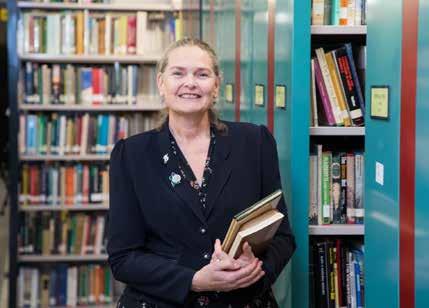
3 minute read
Maritime Culture Survey
Maritime Culture – The Navy Today Stories of the Future
The Maritime Culture Guardianship Group (MCGG) has been working this year on understanding the culture we have in the Navy, but more importantly has been working on understanding the culture we want as sailors / iwi hēramana of the Royal New Zealand Navy / Te Taua Moana o Aotearoa.
As was highlighted in last month’s Navy Today, the MCGG conducted the Maritime Culture survey earlier this year, ran focus groups with Junior Rates and Junior Officers, undertook analysis of Pulse and Exit Survey data, as well as a number of workshops and facilitated sessions across the Navy. From this work the MCGG identified five priority areas: • Revitalising our shared sense of purpose – what makes us unique as sailors and civilians in the RNZN • Improving our internal communications to ensure the right information is flowing up and down the chain of command • Focusing leaders on prioritising people in decision making • Building effective and empowering career management and development systems • Strengthening whakawhanaungatanga across the Navy community with a focus on Devonport Naval Base and surrounds. The culture of any group is made up of the stories that we share, so the Maritime Culture project team asked the recent Navy Leadership Board and the Warrant Officers Forum to tell the Navy Today stories of our preferred future culture using the five priorities as guides. There was some fun to be had – plastic sandals and white shorts made a comeback, sports competitions were won, and a knighthood or two were on offer. The stories however were similar across all the groups – and were comparable to the feedback of our Junior Rates and Junior Officers earlier in the year during the focus groups. Our preferred future is one where we have a strong sense of purpose as sailors / iwi hēramana, we are connected with our whānau and wider community, we are continuing to train our people to an exceptional standard, and we are having fun together. The stories we tell will continue to strengthen our unique maritime culture. What stories will you tell? He waka eke noa / We are all in this together.
MANAGED ISOLATION NO SETBACK FOR DREAM JOB
Able Weapon Technician Jacob Burkhard is a happy man.
He’s a Weapon System Maintainer with frigate HMNZS TE MANA and more than ready to show off the workings of an Anzac-class fiveinch main gun, the biggest gun in the Defence Force, to visitors and VIPs on board during the ship’s visit to Wellington last month. TE MANA has returned from a robust period of training off the Australian coast, which included firing the main gun – one of the biggest reasons for being if you’re a Weapon Technician. It seems a long time ago when AWT Burkhard, then an Ordinary Electronics Technician in 2021, was pulled from his trade training to help staff a Managed Isolation and Quarantine Facility in Auckland as part of the Government’s response to COVID-19. In fact, he ended up doing two postings at MIQFs, with the second lasting six weeks. He helped with meet-andgreet, security and front-of-house taskings. The demanding role Defence Force played with MIQFs has been cited as one of the factors in the attrition across all three services. But AWT Burkhard has been there, done that, and doesn’t feel it set him back in any way. In fact, during a Navy Today interview last year, he said when you’re spending months training and studying, it was exciting to be tasked with something that benefitted the whole country. He reflects on it now, in his small workroom immediately below the ship’s main gun. “It was a job that had to be done,” he says. “It was an important job to try and keep COVID out as long as we could while more and more people got vaccinated. COVID’s affected me personally. It’s affected our coursework, and I’ve had COVID twice.” Even with the long stints in MIQF, no-one fell behind in their training. “Our whole course got sent for MIQF duties for six weeks, so noone got left behind. The instructors were very accommodating.” His posting to TE MANA is his first sea posting and it’s been a good one. “It’s a great environment on a frigate and this is the best trade in the Navy. Everyone looks out for each other and I’ve had some good experiences. This is a dream job and it was exactly what I wanted.” And when you’ve got visitors to ship, you can guarantee they all want to see the big gun. “I’ve been helping with tours over the weekend – hopefully some of them will want to become Weapon Technicians!”










